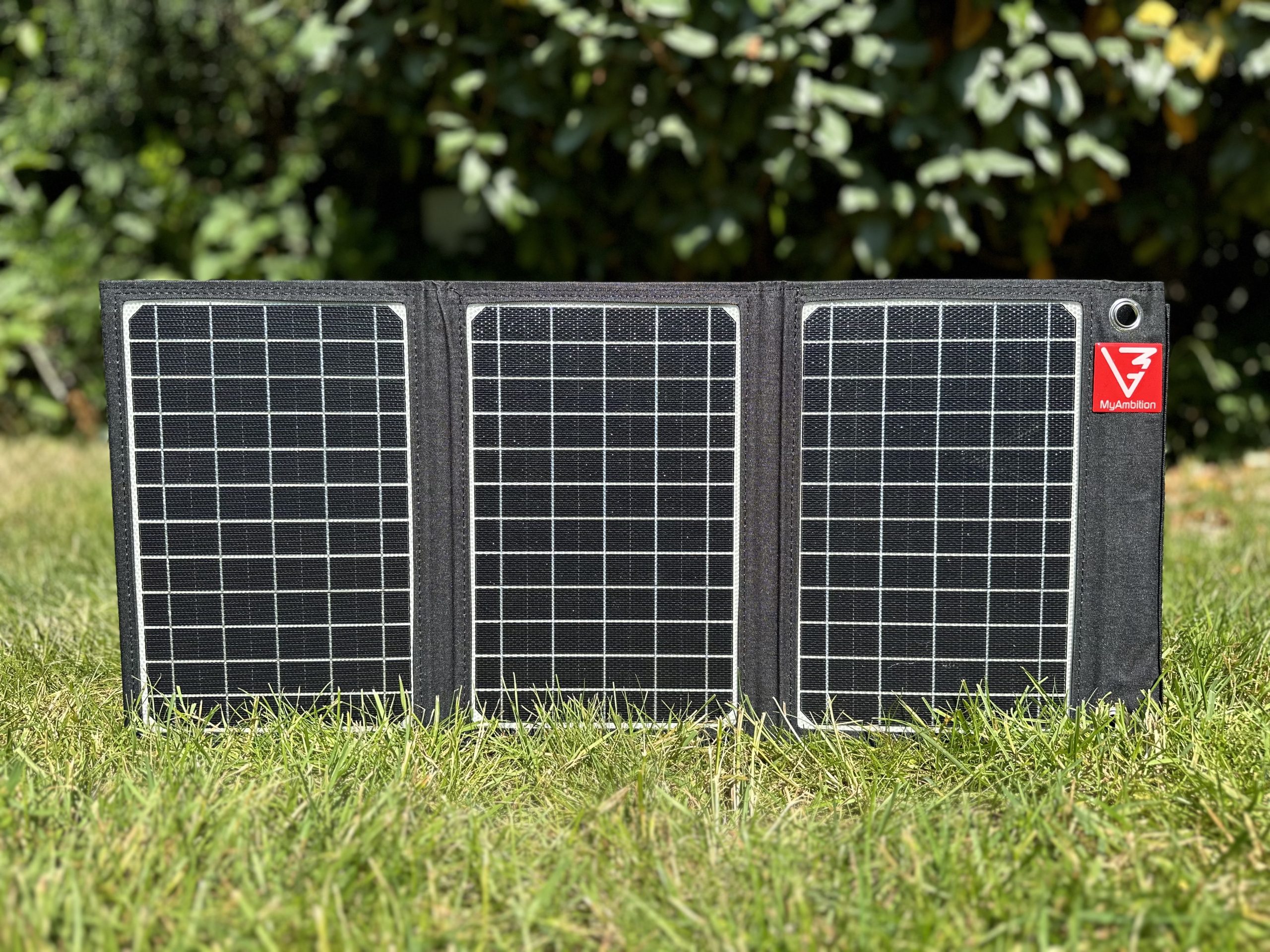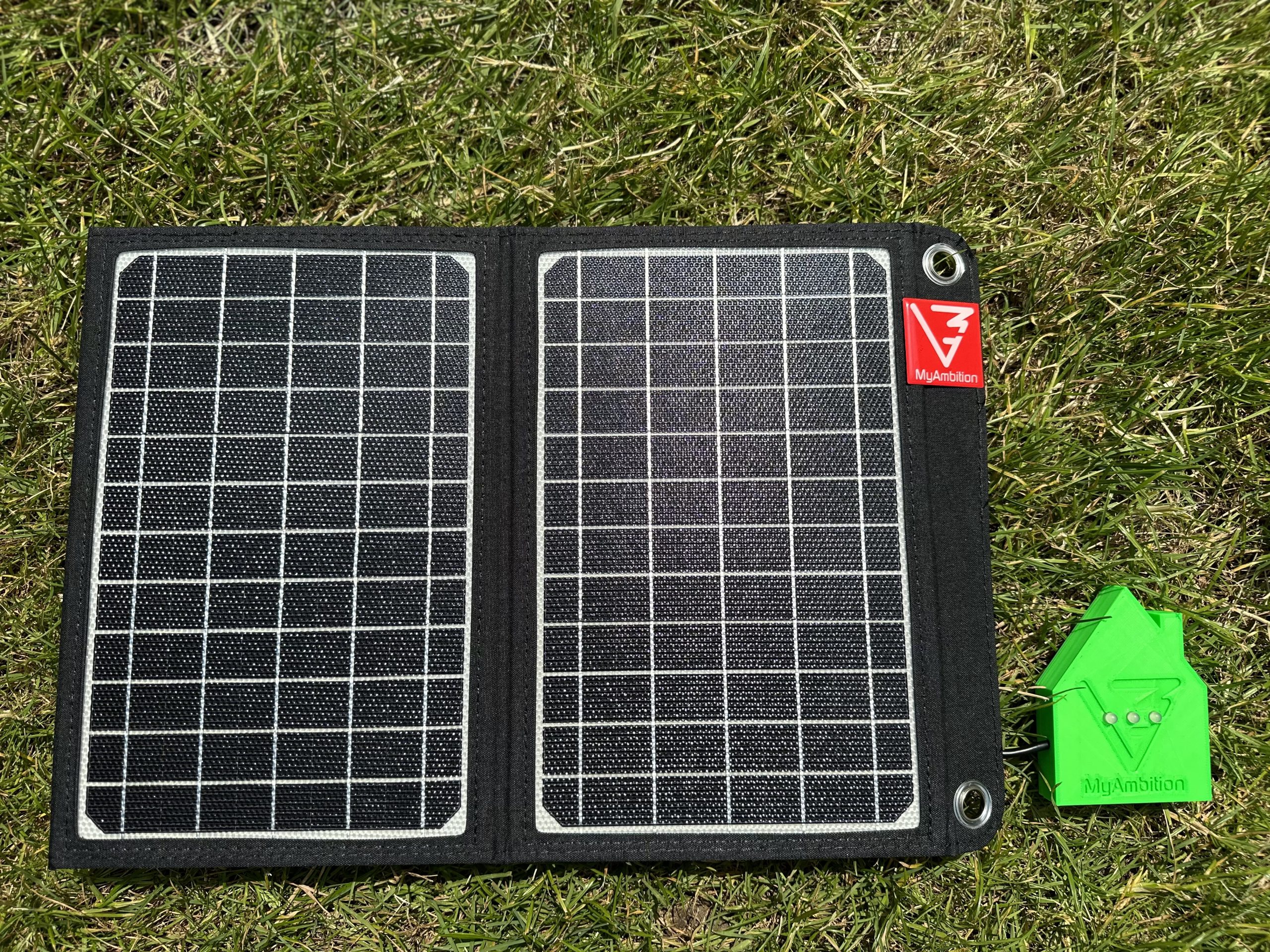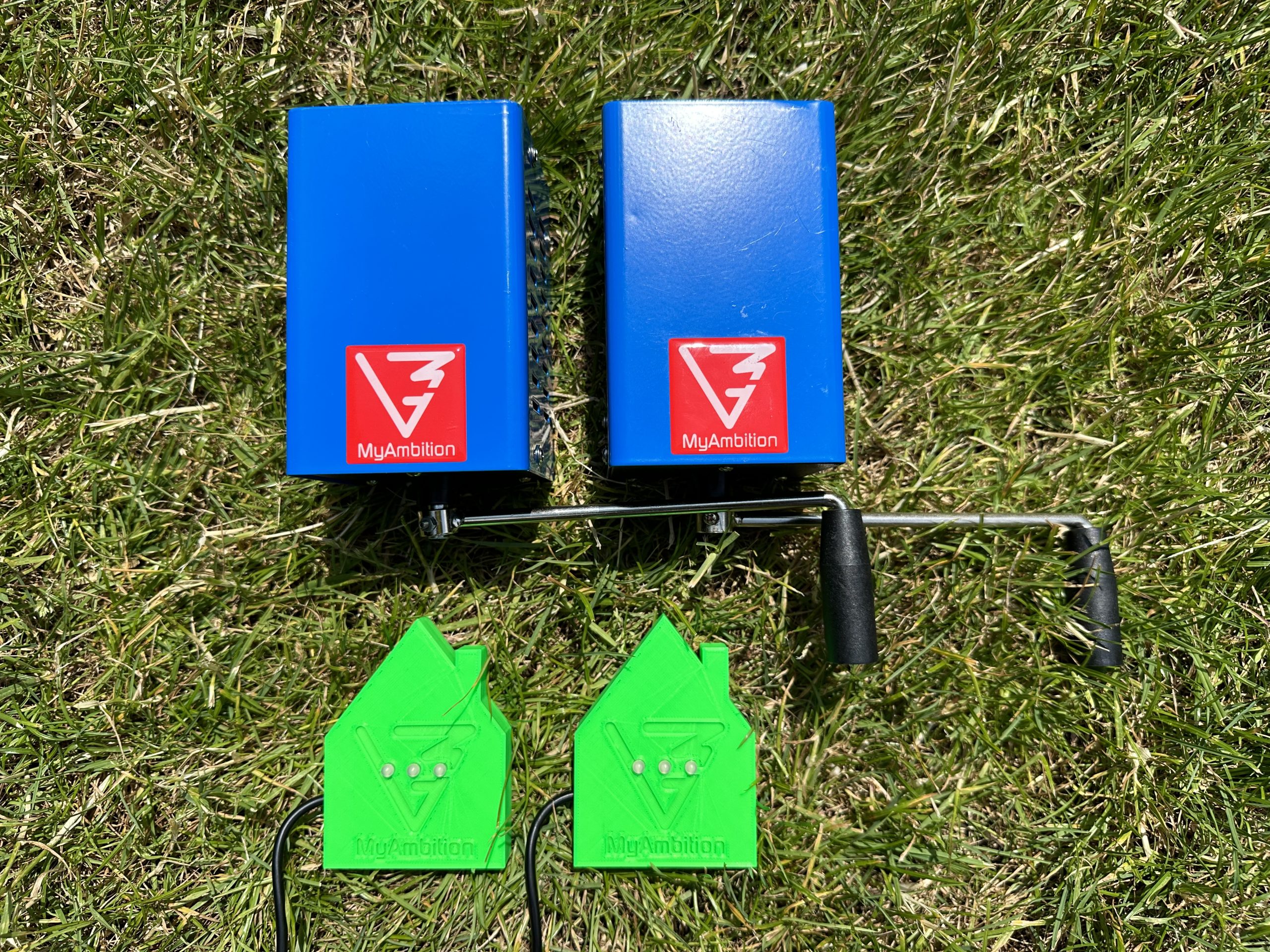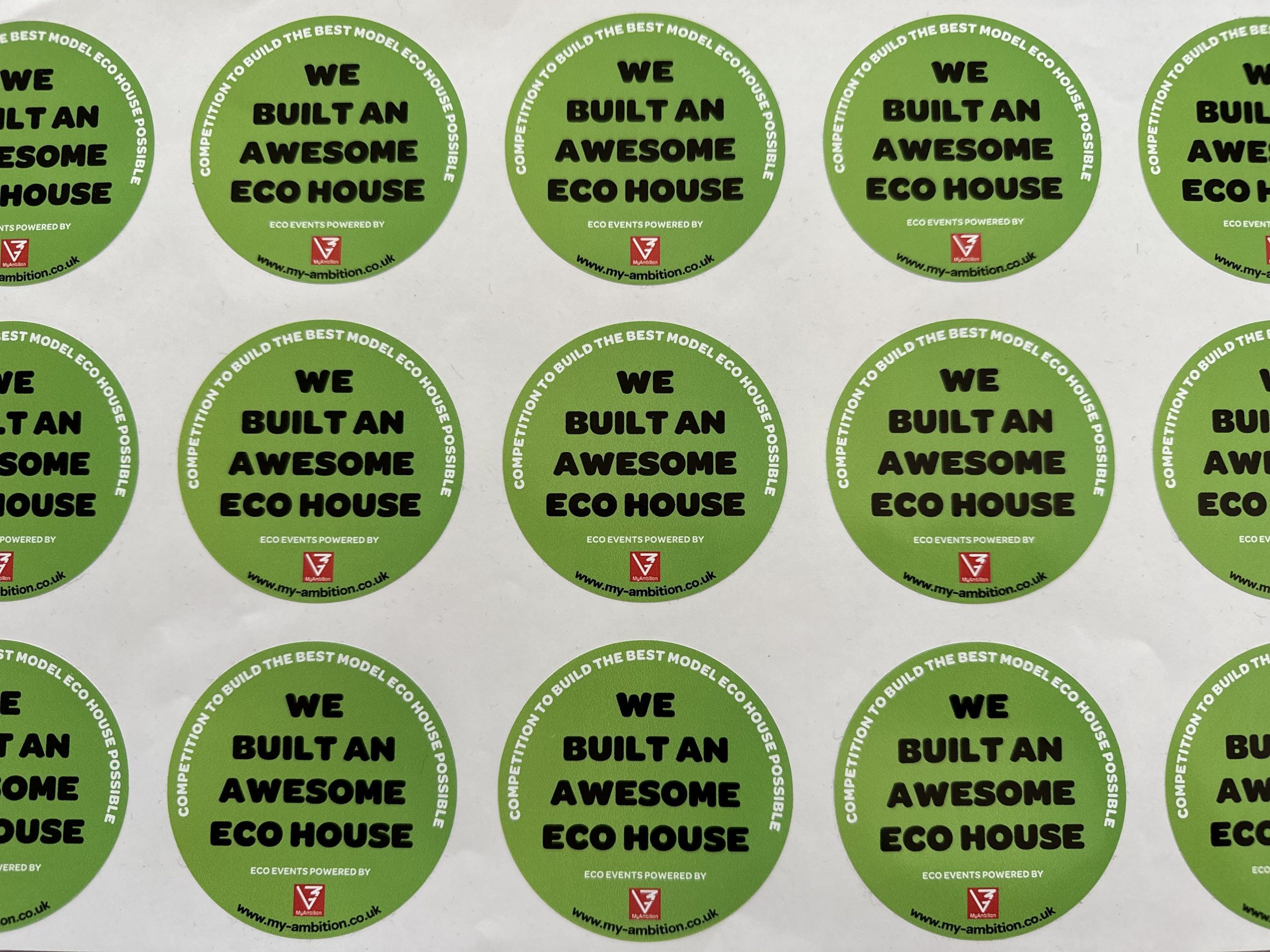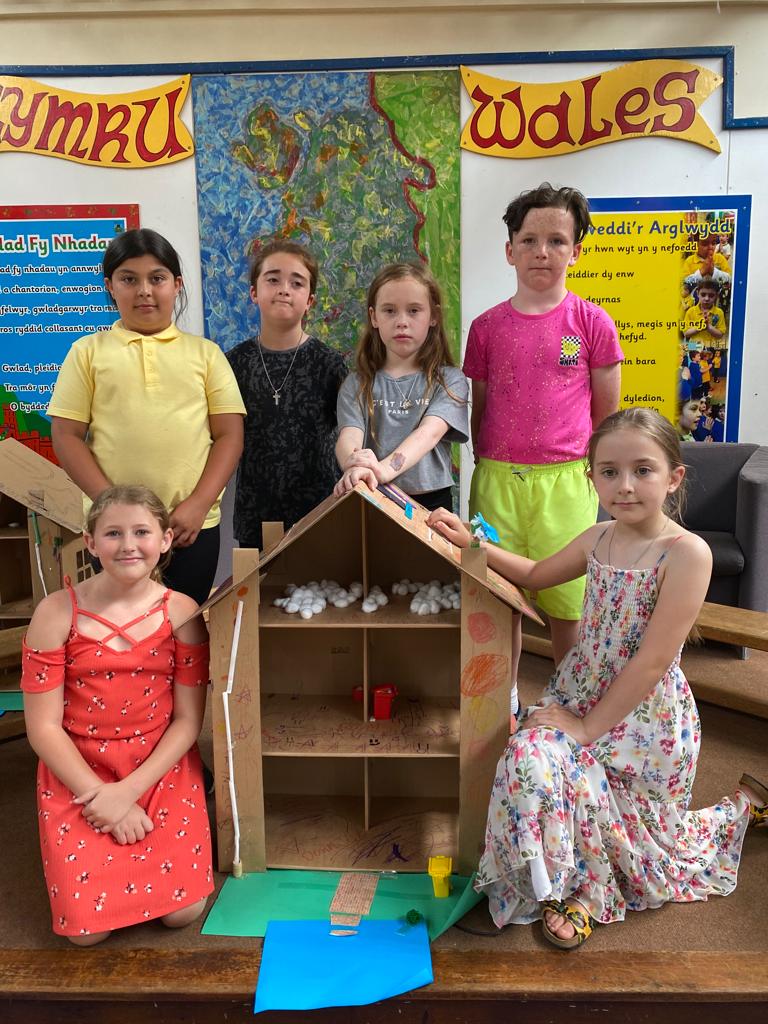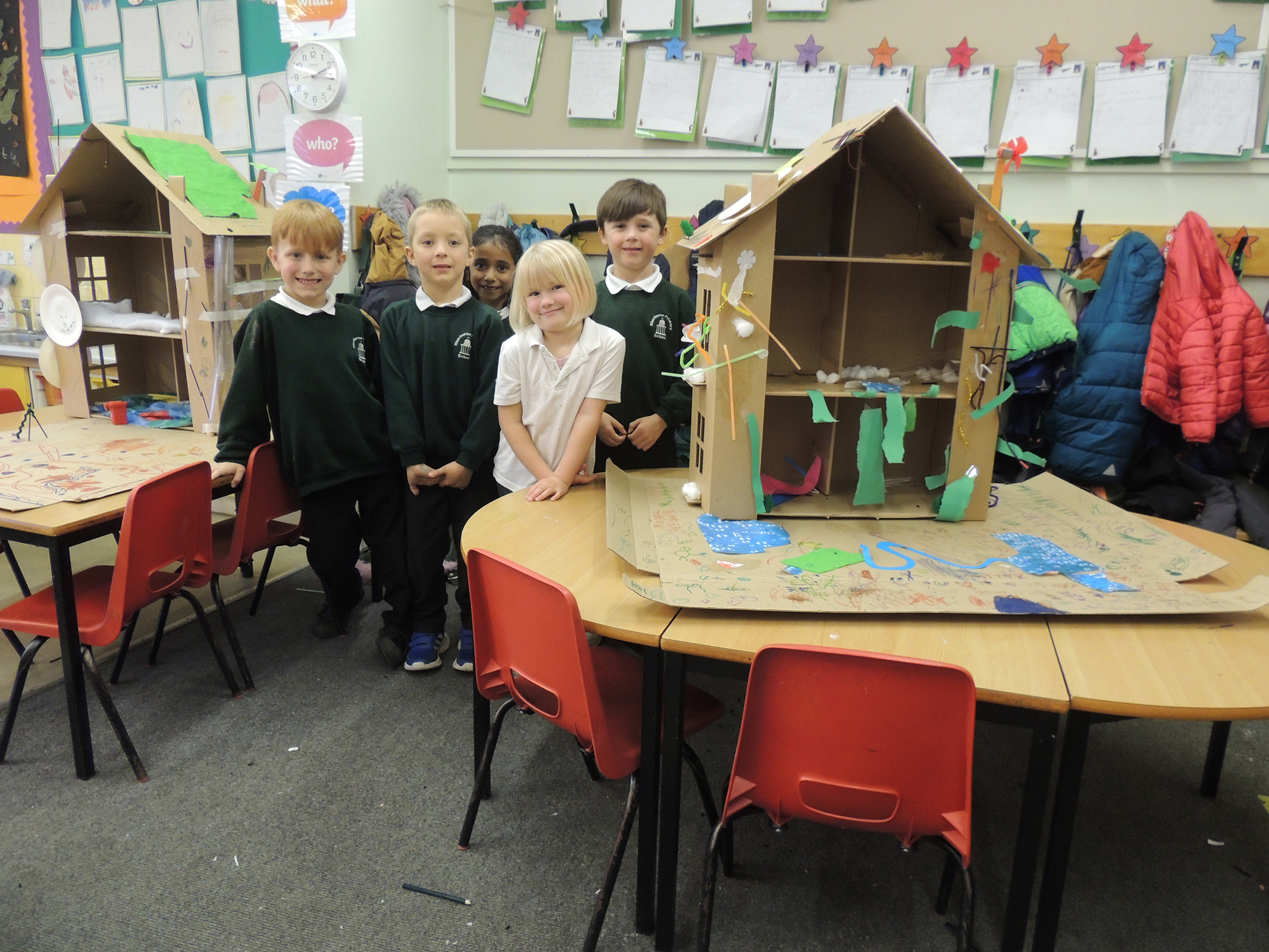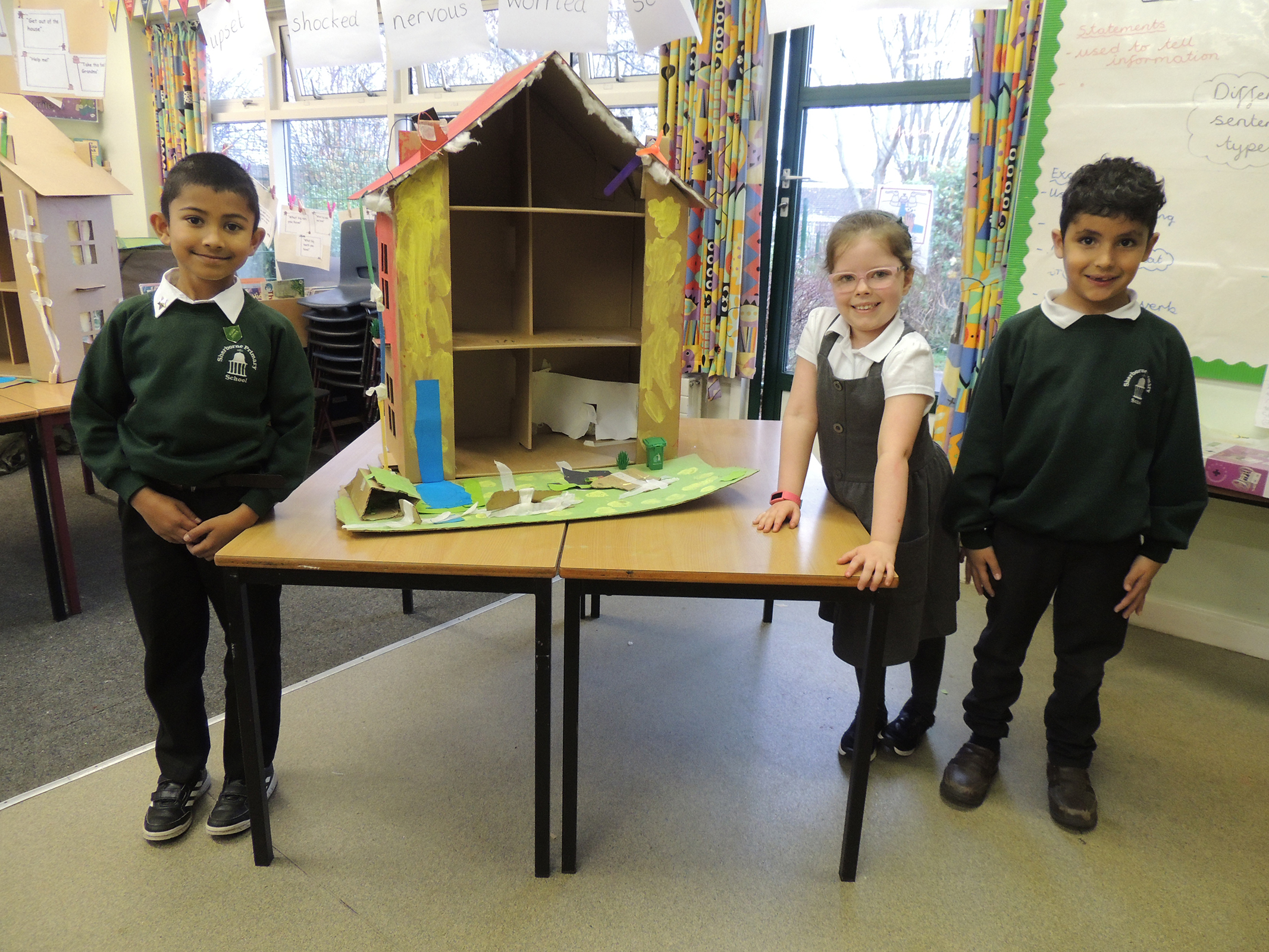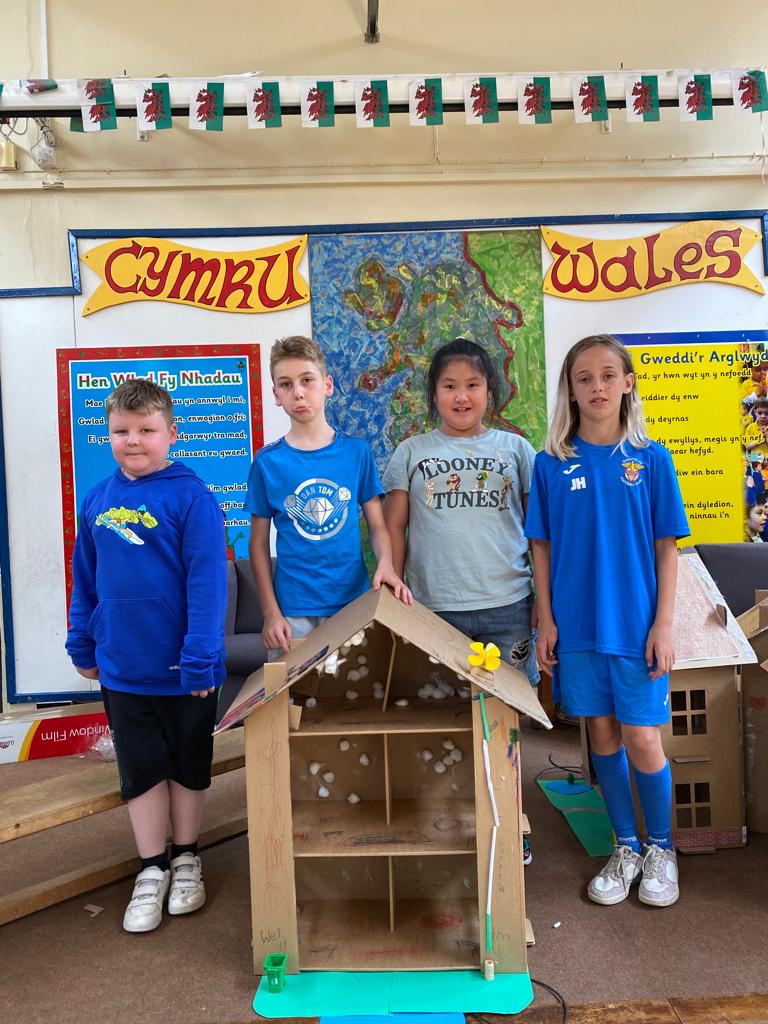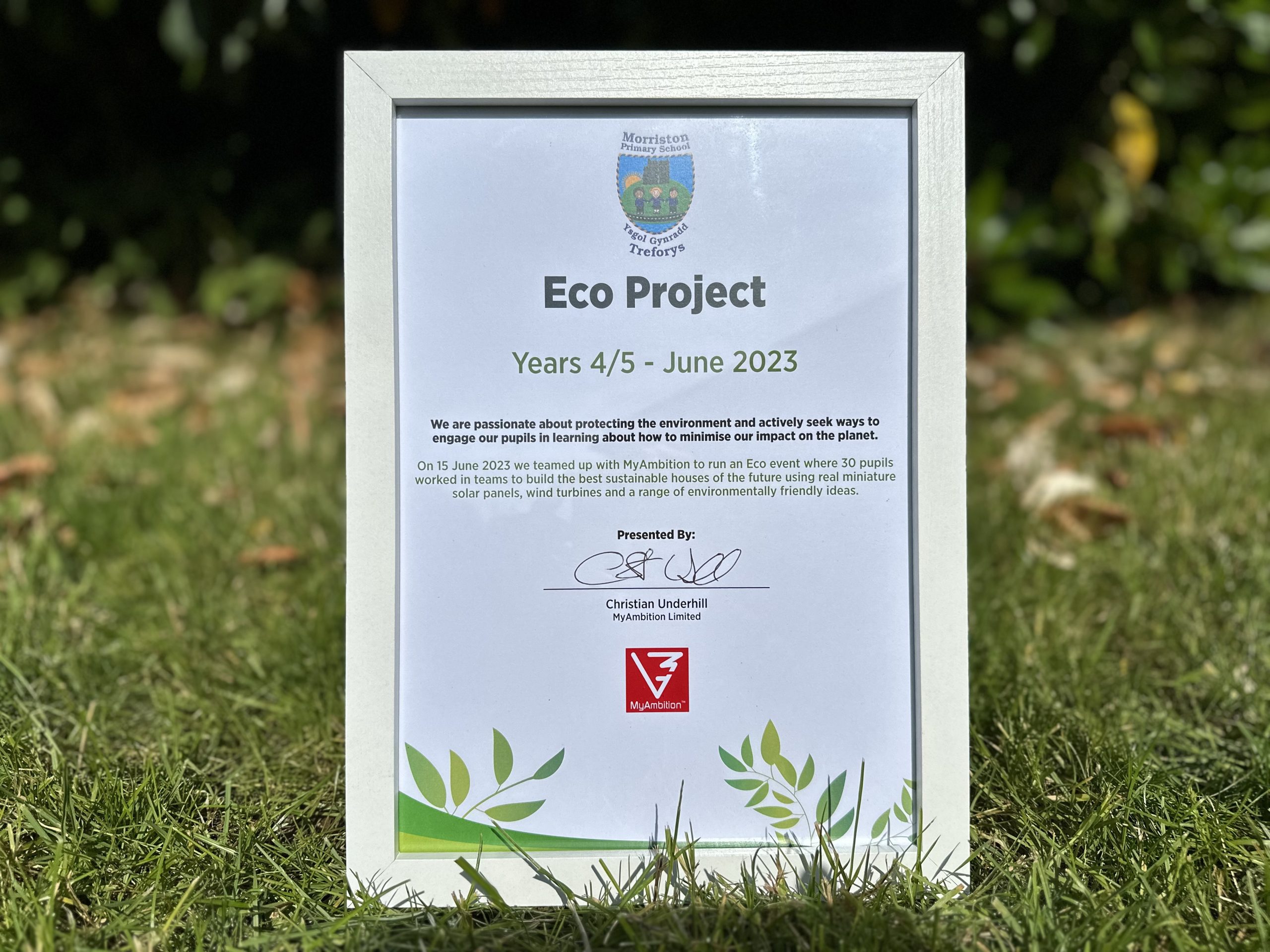Number of children who have Built ‘Eco Houses’
Number of Eco Events* run completely free for schools
* Eco Events include full sustainable energy and recycling builds, roll-out of multiple solar powered robots for classes and the supply of
free gardening equipment for schools.
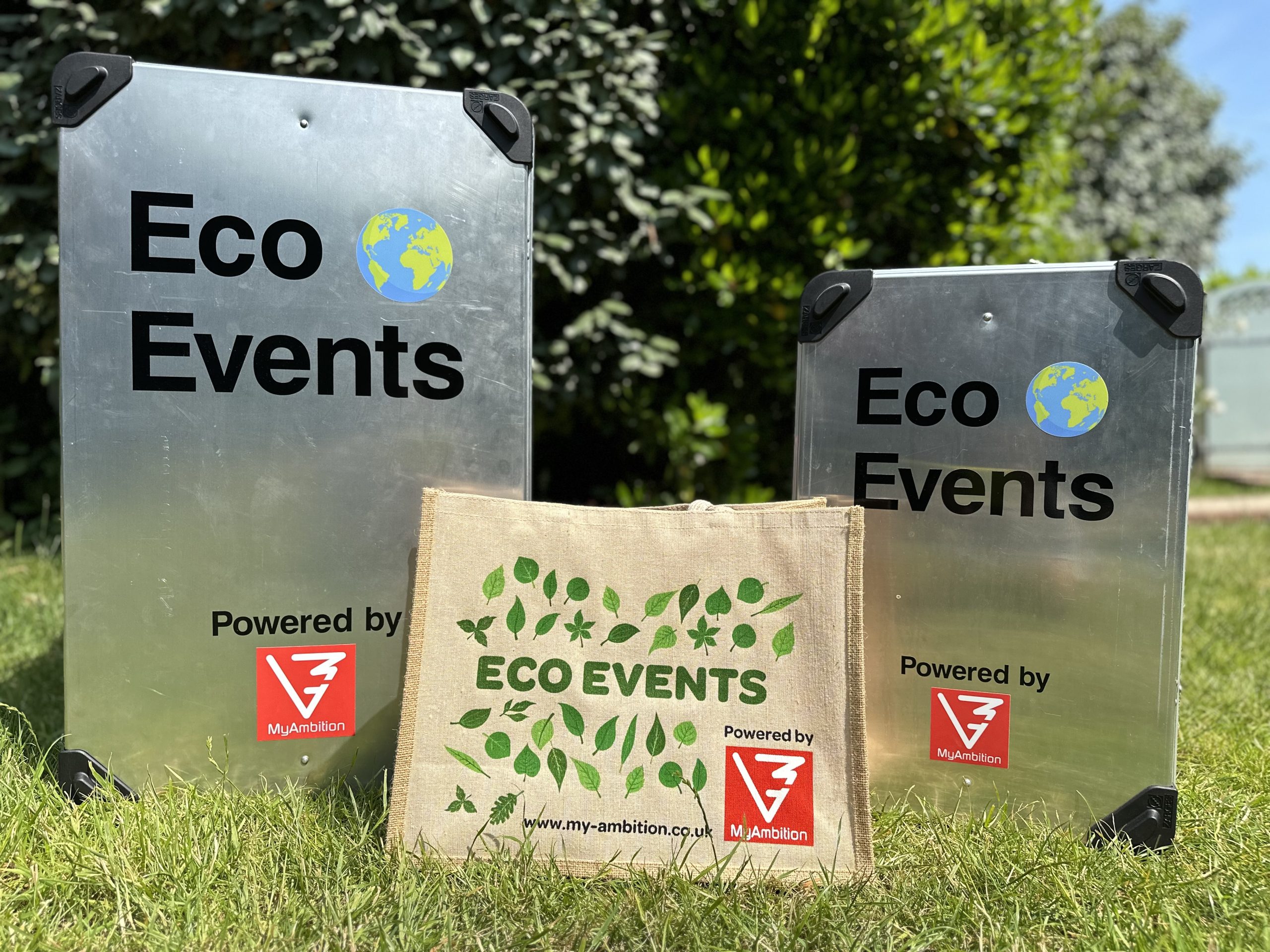
We are extremely passionate about the environment and launched ‘Eco Events’ in 2019 to inspire the next generation. Our Eco Events are provided completely free of charge to infants and junior schools throughout England and Wales to enable students to learn about all types of sustainable energy and recycling as they compete in teams to build the best Eco Houses.
Children learn about all aspects of renewable energy from solar and wind to hydroelectric and geothermal. They also explore a variety of ways in which to reuse or recycle materials / wastewater, build real life electrical circuits (powered by solar) and explore ways in which to enhance the energy efficiency of properties via insulation. We also supply our insect hotels to schools to provide crucial habitats for beneficial insects, promoting biodiversity and supporting ecosystem health and pollination.
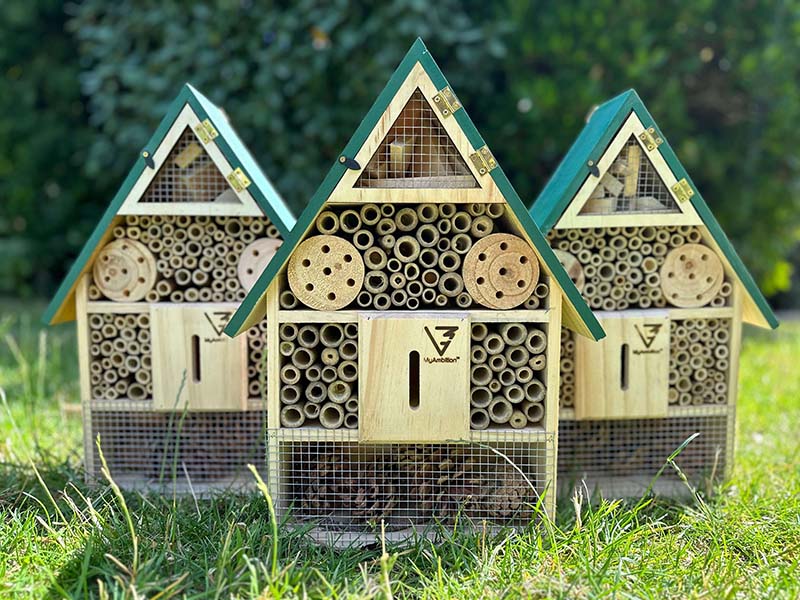
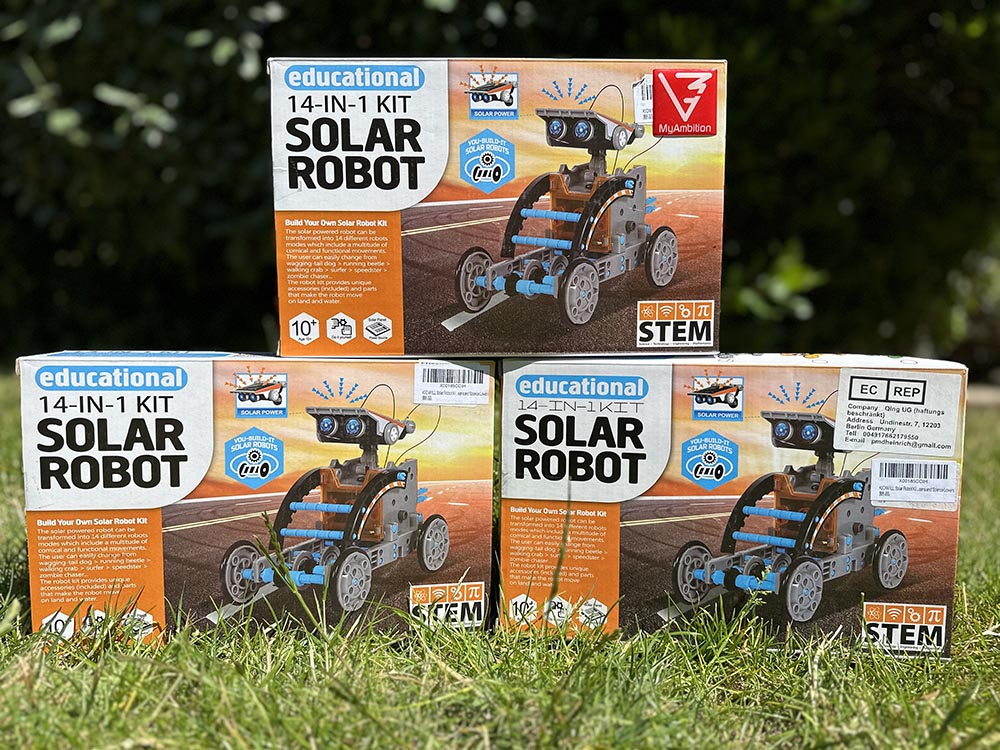
In additional to our standard eco-events, we have also donated numerous solar powered robots to schools. These robots always receive great feedback as the students not only learn about sustainable energy but get to first hand witness it power machines they have just built from scratch. In addition, the students are able to use software to program the robots – this in turn compliments their education regarding STEM (Science Technology Engineering and Maths) subjects.
We have created materials to educate children taking part in our Eco Events about several types of renewable energy including: Photovoltaic, Wind, Hydroelectric, Geothermal and Solar water heating. These learning aids help children to objectively understand the application as well as Pros and Cons of renewable energy as they build our future.
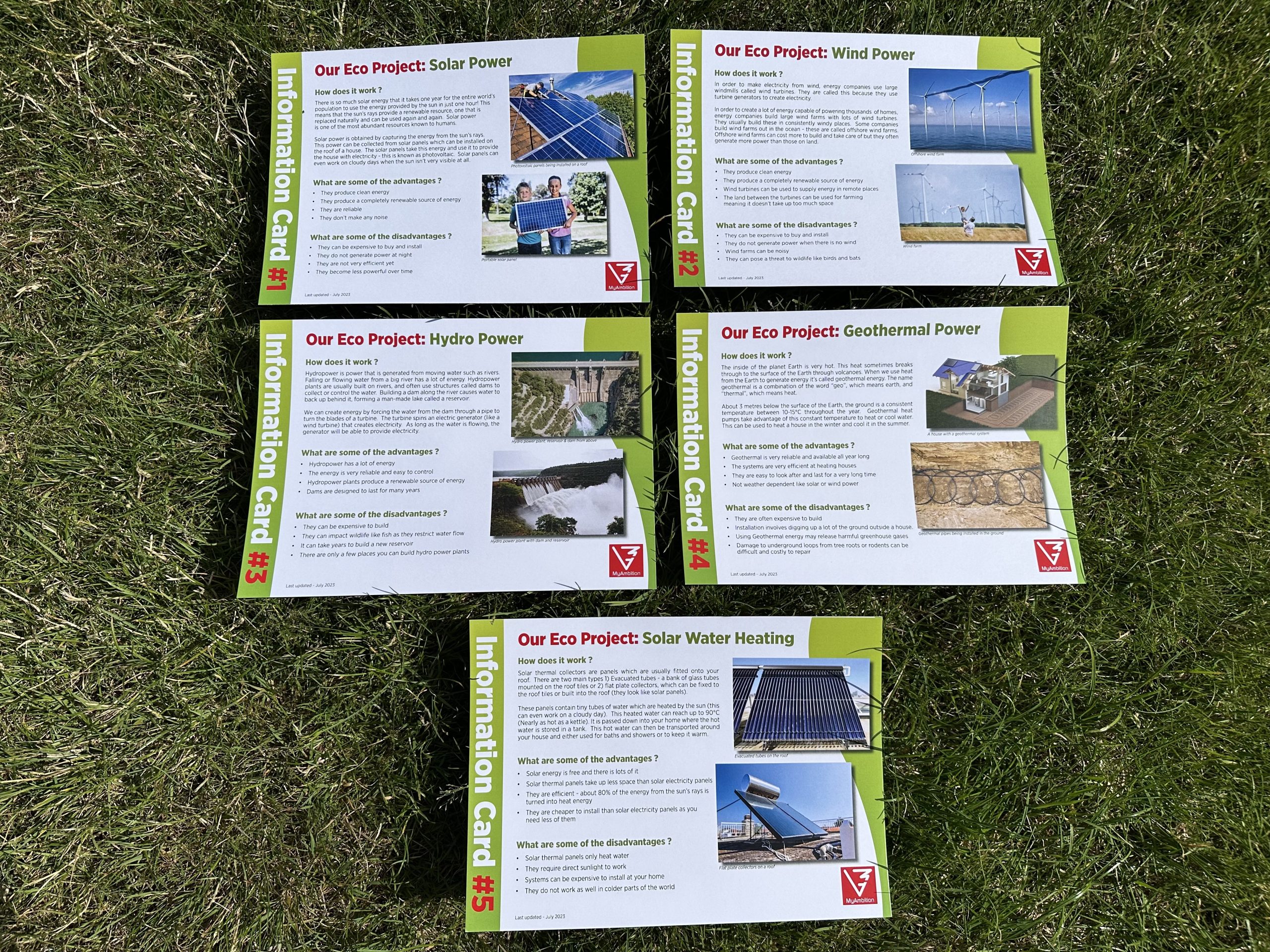
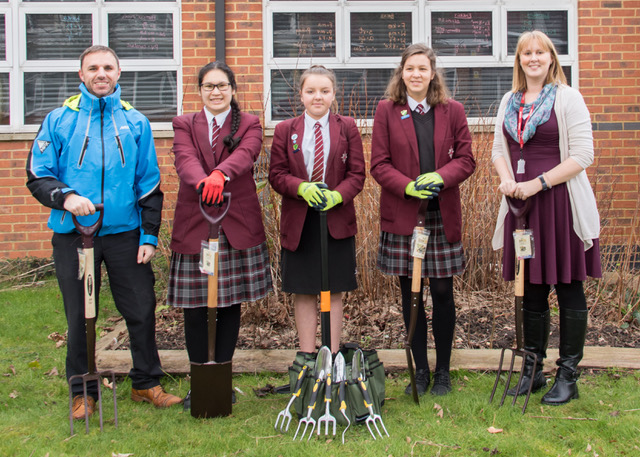
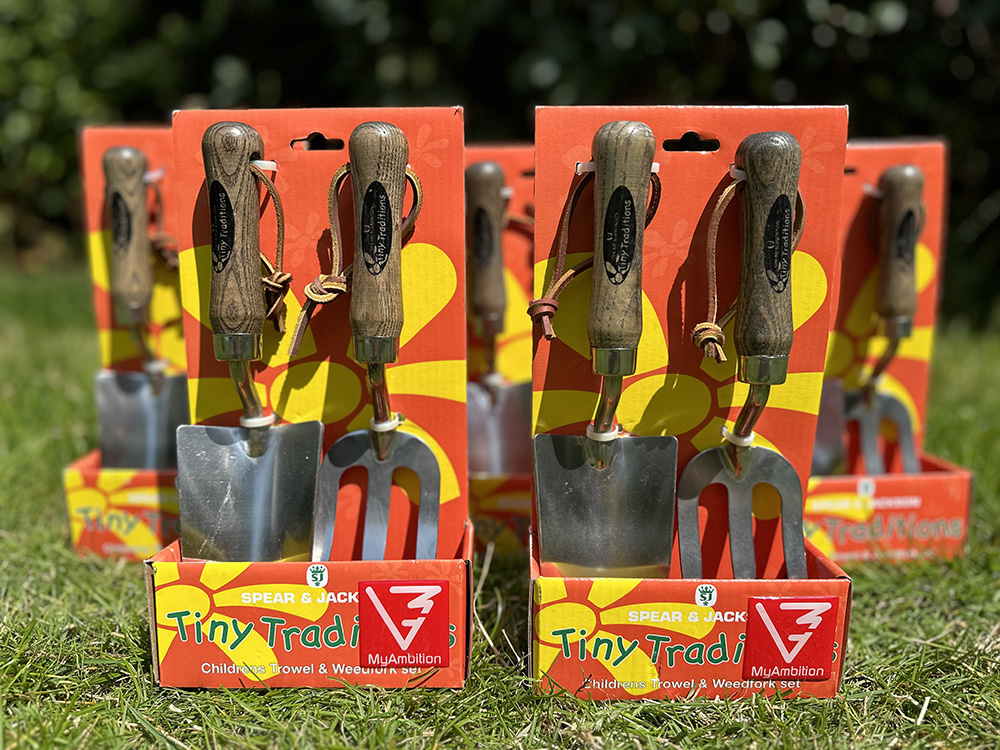
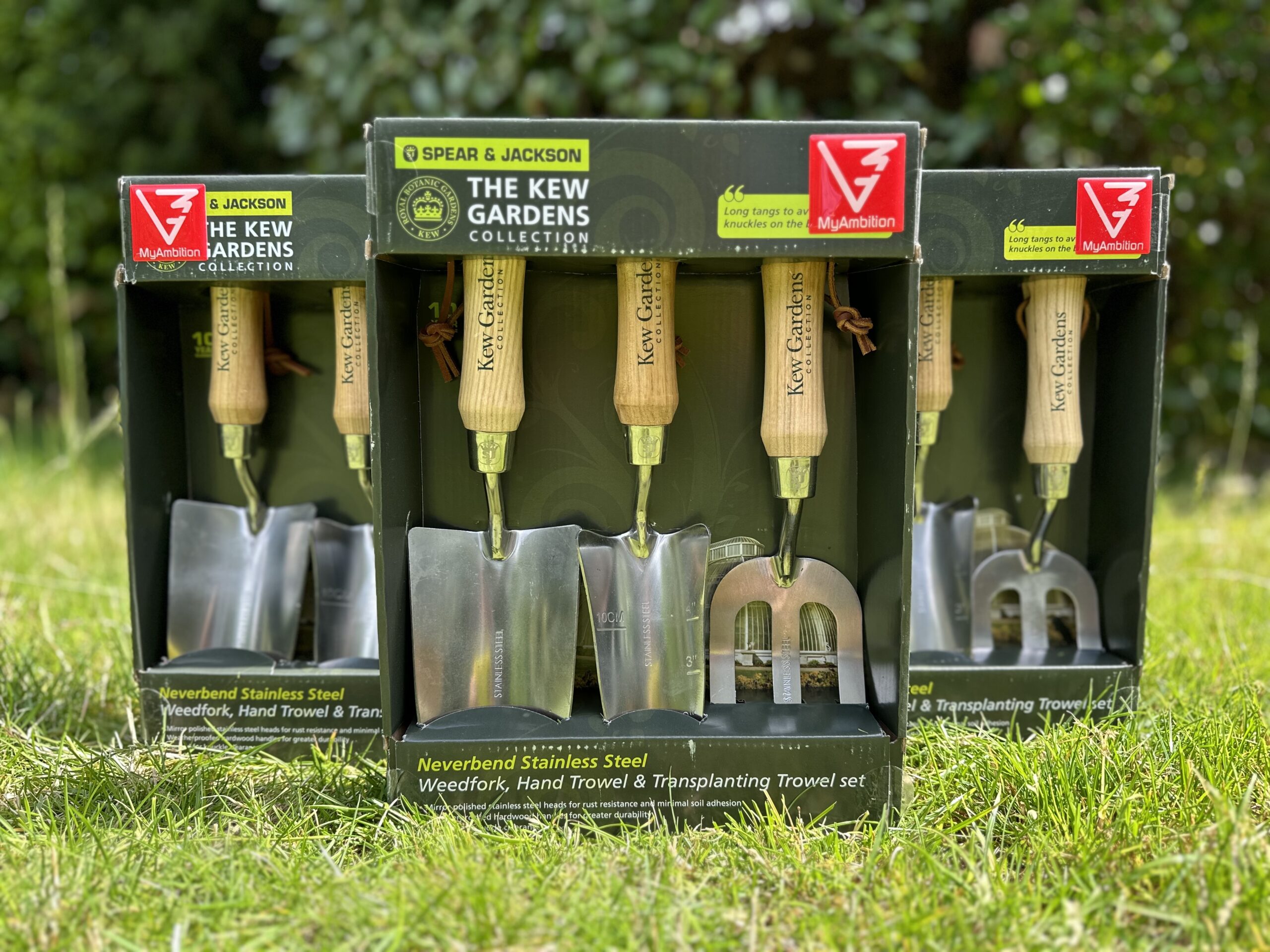
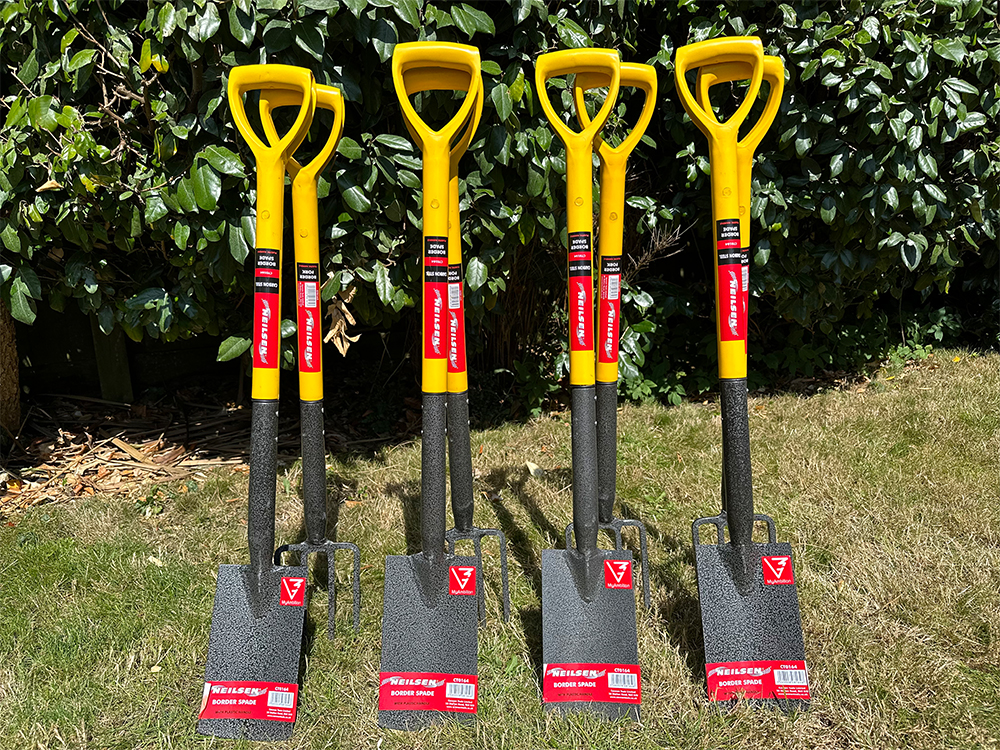
Finally, we have supported a number of schools (from infants/junior to secondary &Sixth form) by providing free gardening equipment so that students can learn how to grow their own organic vegetables at school.
By learning how to grow their own food, students understand how to be more self-sufficient and tackle carbon emissions by reducing transportation
of food from long distances.
Finally, we have supported a number of schools by providing free gardening equipment so that students can learn how to grow their own organic vegetables at school. By learning how to grow their own food, students understand how to be more self-sufficient and tackle carbon emissions by reducing transportation
of food from long distances.
